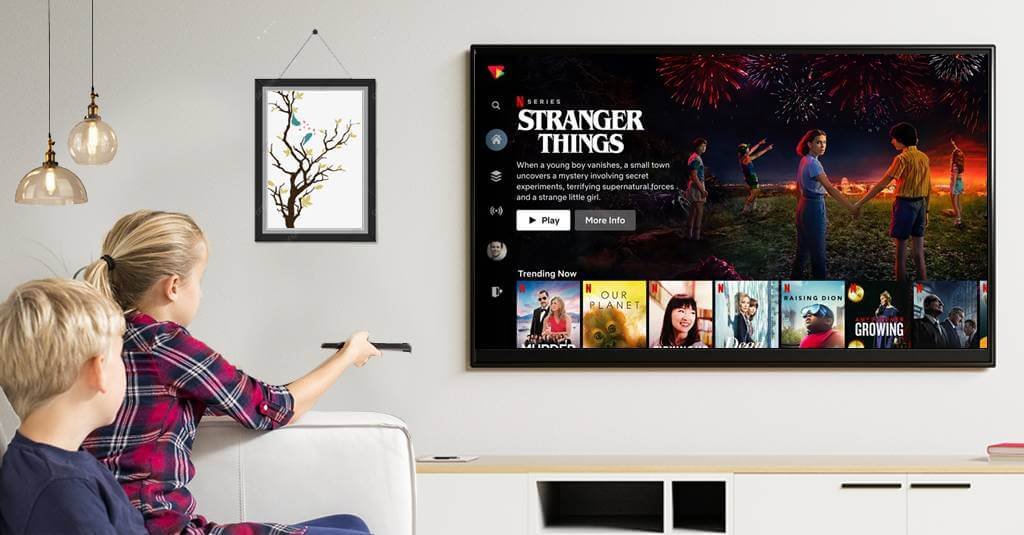The Pros and Cons of IPTV: Exploring the Future of Television

In the ever-evolving landscape of technology and entertainment, Internet Protocol Television (IPTV) has emerged as a significant player, transforming the way we consume television content. IPTV leverages the power of the internet to deliver television programming and multimedia content, offering both advantages and disadvantages that warrant consideration for those looking to embrace this innovative form of entertainment.
Advantages of IPTV:
1. Flexible Content Delivery: One of the most appealing aspects of IPTV is its flexibility in content delivery. Unlike traditional cable or satellite TV, IPTV allows users to select and watch content on-demand. This ensures that viewers can access their favorite shows, movies, and programs at their convenience, eliminating the need to adhere to rigid broadcasting schedules.
2. Wide Content Variety: IPTV provides an extensive array of content from around the world. Users can access international channels and programs that might not be available through traditional means. This diversity caters to the tastes and preferences of a global audience, offering a broader selection of entertainment options.
3. Interactive Features: IPTV introduces interactive features that enhance the viewing experience. Users can engage with their television, such as participating in polls, quizzes, and games related to the content they are watching. This interactivity bridges the gap between the audience and the content, making television consumption a more engaging and immersive experience.
4. High-Quality Video: With advancements in internet speed and streaming technology, IPTV can deliver high-quality video content, including high-definition (HD) and even 4K resolution. This ensures that viewers can enjoy their favorite shows and movies with exceptional visual clarity.
Disadvantages of IPTV:
1. Dependence on Internet Connection: One of the primary disadvantages of IPTV is its reliance on a stable and fast internet connection. If the internet connection is slow or experiences interruptions, it can lead to buffering issues, pixelated video quality, and interruptions in the viewing experience.
2. Limited Live Content Reliability: While IPTV offers access to a variety of content, live events and broadcasts can sometimes face reliability challenges. Due to the real-time nature of live events, technical issues or server overload can lead to disruptions in the broadcast, causing frustration for viewers.
3. Privacy and Security Concerns: Since IPTV relies on the internet, there is a potential risk for privacy and security breaches. Unauthorized access to the content, distribution of copyrighted material, and potential hacking vulnerabilities are concerns that must be addressed by service providers.
4. Subscription Costs: Although IPTV often comes at a lower cost compared to traditional cable or satellite TV, premium services and high-quality content might still require higher subscription fees. Additionally, the cost of a reliable high-speed internet connection must also be factored into the overall expense.
Recommended IPTV Subscription:
For those considering an IPTV subscription, “luxtvprime” offers a balanced blend of advantages while addressing several disadvantages. luxtvprime provides a wide range of on-demand content, international channels, and interactive features, ensuring a versatile entertainment experience. The service focuses on optimizing video quality and minimizing buffering, ensuring a smooth viewing experience even during high-demand periods. Moreover, luxtvprime places a strong emphasis on privacy and security, employing robust encryption and authentication measures to safeguard user data and content.
Endless Entertainment With The #1 IPTV Provider
- Satisfied or refunded
- Affordable Price For You
- Thousands of Channels

In conclusion, IPTV presents a fascinating and dynamic way to access television content, offering advantages like flexible content delivery and interactivity, balanced against disadvantages like internet dependence and potential security concerns. As the technology continues to evolve, it’s essential for consumers to carefully consider their needs and preferences before subscribing to an IPTV service. With the right service provider, IPTV can undoubtedly be a game-changer in the world of entertainment, offering a glimpse into the future of television consumption.

